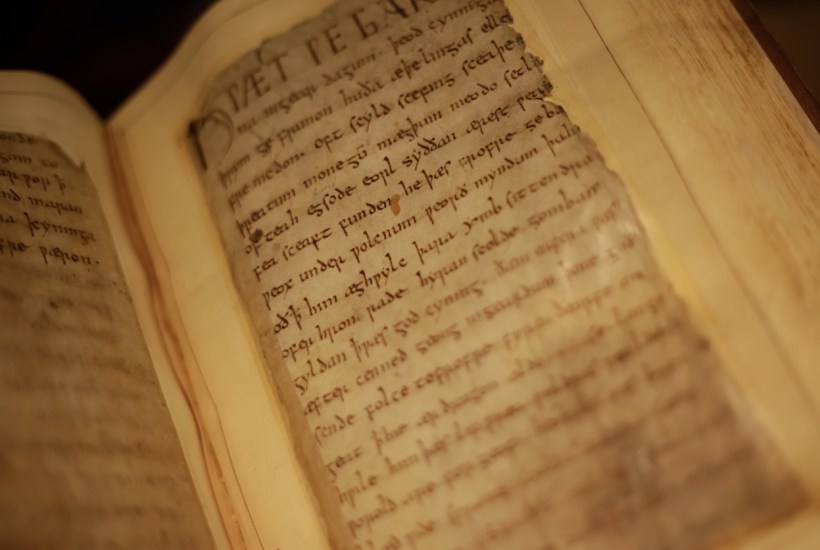In 1408, the Archbishop of Canterbury convened a synod in Oxford to prohibit the reading of John Wycliffe’s English translation of the Bible without the Church’s permission. Long before Martin Luther, Wycliffe – a priest, theologian, and Oxford fellow – argued scripture was the only reliable guide to God’s truth, and that the Papacy had no Biblical justification. His unprecedented translation was a practical – and, for the Church, worryingly popular – challenge to Church orthodoxy.
Although Wycliffe was long dead, the Pope condemned him for heresy in 1415. His supporters – named ‘Lollards’ for their habit of mumbling – were suppressed. Some were burnt to death. Yet Wycliffe’s ideas endured: he was later hailed as the Reformation’s ‘Morning Star’. The Church’s attempt to silence him could be said to be Oxford’s first great free speech debate. Unfortunately for today’s students, it was not to be the last.
The idea a text from the Middle Ages could be personally damaging for an English student in 2023 is ludicrous
Even in Wycliffe’s own university, the authorities are discouraging students from reading texts deemed too challenging. According to the Telegraph, Oxford English tutors are reportedly slapping trigger warnings on medieval texts used on literature courses. Students are being warned that The Canterbury Tales, Beowulf, and Sir Gawain and the Green Knight may be ‘racist and misogynist’.
That poetic works from the Middle Ages fail to reach the exacting standards of today’s neurotic racial and sexual politics should hardly be surprising. What is rather more shocking is that tutors in one of the world’s best universities are seeking to ward students off from important works that played such a key role in the development of the English language. What possible reason could a tutor have for finding them problematic?
Supporters of trigger warnings argue that preventing students from reading key texts is the last thing they want. Their objective instead is to protect vulnerable students from reading anything that might ‘cause them harm’. This view would be more sympathetic if a book involved something particularly personally traumatic for a student. Yet it is impossible to guard for that without prying far too deeply into someone’s life – or taking the book off the shelves altogether.
But how many current undergraduates spent their teenage years beheading green giants at King Arthur’s court, or going on pilgrimage to Canterbury? The idea a text from the Middle Ages could be personally damaging for an English student in 2023 is ludicrous. In fact, today’s students, raised on a diet of Lord of the Rings, The Witcher and Game of Thrones, are perfectly primed. If they can survive the sex and violence of Westeros, they shouldn’t struggle with the Wife of Bath.
Perhaps there is another agenda behind the enthusiasm for content warnings amongst today’s academics. It seems, like the medieval church, to be really aimed at cracking down on texts that challenge today’s prevailing orthodoxies. The Catholic Church’s Index Librorum Prohibitum, a notorious list of proscribed books, traces its origins back the fifth century. Abolished in 1966, its spirit is still evident on campuses today – but in the service of modern progressive politics.
An investigation by the Times last year found tigger warnings had been applied to over 1,000 texts. From William Shakespeare to Agatha Christie, works by some of England’s greatest authors were deemed challenging enough that students needed an advance warning.
Although couched in the language of safetyism, it’s hard not to see restricting access to classic texts as part of other efforts to ‘abolish the canon’ in the interests of removing ‘white, western, and Eurocentric’ knowledge from the curriculum.
‘Decolonising the curriculum’ or ‘smashing heteronormativity’ means clearing out any author considered too stale and pale – even if it involves junking a millennium old linguistic inheritance. Labelling The Canterbury Tales racist or misogynistic today ends with Geoffrey Chaucer removed from the curriculum tomorrow – as has already happened at the University of Leicester.
Oxford was founded by the medieval Church to raise young churchmen in its established orthodoxies. Progressive academics hope to do the same for students today.
The onus therefore falls back on students to choose for themselves. Literature students could choose to be complicit in this insidious shrinking of the English canon. Or they could remember Wycliffe, the Lollards, and the Church’s futile efforts to smash his ideas. They should tell their overzealous tutors to get stuffed, grab a copy of Beowulf, and embrace a very modern heresy.
Got something to add? Join the discussion and comment below.
Get 10 issues for just $10
Subscribe to The Spectator Australia today for the next 10 magazine issues, plus full online access, for just $10.



















Comments
Don't miss out
Join the conversation with other Spectator Australia readers. Subscribe to leave a comment.
SUBSCRIBEAlready a subscriber? Log in